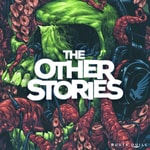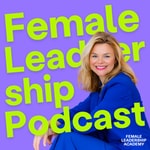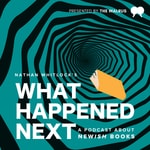Borderline – Détails, épisodes et analyse
Détails du podcast
Informations techniques et générales issues du flux RSS du podcast.
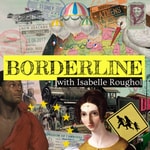
Borderline
One Lane Bridge (Isabelle Roughol)
Fréquence : 1 épisode/12j. Total Éps: 60
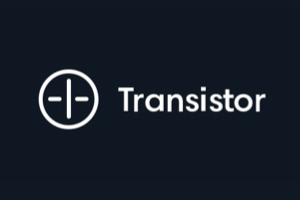
Classements récents
Dernières positions dans les classements Apple Podcasts et Spotify.
Apple Podcasts
🇩🇪 Allemagne - newsCommentary
01/08/2025#98🇩🇪 Allemagne - newsCommentary
16/01/2025#80🇩🇪 Allemagne - newsCommentary
11/01/2025#80🇩🇪 Allemagne - newsCommentary
10/01/2025#53🇬🇧 Grande Bretagne - newsCommentary
25/11/2024#71
Spotify
Aucun classement récent disponible
Liens partagés entre épisodes et podcasts
Liens présents dans les descriptions d'épisodes et autres podcasts les utilisant également.
See all- http://freesound.org
719 partages
- https://www.borderlinepod.com/#support
59 partages
- https://twitter.com/IanDunt
10 partages
- https://twitter.com/ameliagentleman
7 partages
- https://twitter.com/iroughol
4 partages
Qualité et score du flux RSS
Évaluation technique de la qualité et de la structure du flux RSS.
See allScore global : 73%
Historique des publications
Répartition mensuelle des publications d'épisodes au fil des années.
Ukraine's other battlefield, with Thierry Cruvellier
Saison 4 · Épisode 53
jeudi 5 mai 2022 • Durée 44:24
"Ukraine has provided us with, I think, the most striking, the most rapid, the most swift and complete legal offensive or lawfare strategy that has ever been implemented."
In this episode
🇺🇦 Ukraine's aggressive lawfare strategy
⚖️ International justice finally comes for the West
🤐 Why former great powers can't cope with their colonial crimes
🇫🇷 Reckoning with the Algerian War
🇨🇩 The DR Congo schools us on prosecuting environmental destruction
🇨🇴 Transitional justice lessons from Colombia, New Zealand, Scandinavia and more
🕊 Restitutions, reparations and truth commissions – justice beyond the courts
Show notes
[00:00:16] Intro
[00:01:42] "There is a before Ukraine and an after Ukraine"
[00:07:18] "Justice has become the third weapon of Ukraine's strategy"
[00:11:46] Is lawfare a communication tool?``
[00:15:39] The slow wheels of the ICC
[00:18:43] Justice gets much more pragmatic at the local level: the example of environmental crimes in the DRC
[00:25:52] A renewed interest in justice for indigenous people
[00:28:58] Colombia, a case study for all-encompassing transitional justice
[00:30:14] Why are some countries better than other at looking into their colonial past?
[00:32:26] The restitution of pillaged objects
[00:34:28] A generational reckoning with colonial crimes: the French Algerian war
[00:40:13] Statues, history vs memory and the new frontline of transitional justice
[00:42:53] Outro
🌍 justiceinfo.net
📚 The Master of Confessions, by Thierry Cruvellier. Ecco Press. 2015. Find it here.
🧬 Check out The Guardian's Science Weekly podcast, where I'm executive producer for the next few weeks.
★ Support this podcast ★Jose Antonio Vargas on telling the full, messy story of immigration
Saison 4 · Épisode 52
mardi 19 avril 2022 • Durée 54:48
A decade ago, journalist and "American without papers" Jose Antonio Vargas outed himself as an undocumented immigrant in a national magazine. Today he works with Hollywood and TV studios to humanise the immigrant story through pop culture.
In this episode
📺 Trafficking in empathy and the power of story to change minds
😢 Why he regrets his mom sending him away to the US
🇺🇸 Reaching America's "moveable middle"
💸 How the economic argument for immigration backfired
😰 Why progressives abandoned the fight
📖 Stories as the last place for nuance and complexity
Show notes
[00:00:16] Intro
[00:02:27] "Home is where I can do my work"
[00:04:05] "Being a journalist is the identity I figured out before all others"
[00:05:22] "All definitions are suspect"
[00:07:28] "Why is it that only a certain portion of the population gets to be an activist?"
[00:09:52] "Legalizing pot is a higher priority than legalizing people"
[00:10:33] "Imprisoned by the language we use on immigrants"
[00:14:09] "We can call immigrants essential labor, but we don't think of them as essential people"
[00:16:16] "Storytelling is trafficking in empathy"
[00:18:09] "The only time many white Americans meet a person of color or an immigrant is through the media they consume"
[00:24:51] "We work on shows that reach the movable middle"
[00:28:23] "We have yet to find some sort of language that talks about how borderless business and money is and how people are still very much, you know, locked up by these borders"
[00:32:55] "If I had a say in the matter as a 12 year old, I would have told my mom, don't do that"
[00:35:39] "That's the power of story"
[00:37:51] "Narrative is not a slice of the pie. It's actually the pan."
[00:39:39] "Storytelling is the only place where nuance can happen"
[00:42:38] "White is not a country"
[00:49:05] "I traded a life of being in the closet as undocumented in limbo to being a public undocumented person whose life is still in limbo"
[00:52:46] Outro
Jose Antonio Vargas's works
🇺🇸 Define American, a culture change organization that uses the power of narrative to humanize conversations about immigrants.
📚 Dear America: Notes of an Undocumented Citizen (2018, Harper Collins). Upcoming: White is Not a Country (2023, Pantheon Books)
🎬 Documented: A film by an undocumented American (2014, CNN)
🎭 What the Constitution Means to Me, a play by Heidi Schreck (producer)
Works referenced
📚 Beloved, Toni Morrison
📺 Superstore (NBC)
📺 Roswell, New Mexico (CW)
🎬 The Lost Daughter (Netflix)
🎬 Drive my Car
Busting myths about refugees and Channel crossings, with Daniel Sohege
Saison 4 · Épisode 47
mercredi 1 décembre 2021 • Durée 43:33
Crossing the Channel without preauthorisation is legal, the vast majority of people crossing are rightful asylum seekers and there is no such thing as the "first safe country" rule. Also, there is no queue to wait in or to jump, most people aren't trafficked or smuggled, and only a trickle of the world's refugees arrive in rich countries. Refugee rights consultant Daniel Sohege breaks down the false arguments about asylum seekers making the rounds in media and on Twitter.
Show notes
[00:00:22] Intro
[00:03:05] Is this a migrant crisis?
[00:06:01] Channel crossings are for many the only option. Still, very few take it.
[00:07:25] There just isn't a queue to jump to apply for asylum
[00:09:43] "First safe country" is a myth
[00:11:55] Arriving by boat without pre-authorisation is not illegal
[00:12:46] Most border crossings are not arranged by smugglers
[00:16:14] Hard border controls can feed smuggling and trafficking businesses
[00:19:47] Airlines and other carriers can be fined for unknowingly helping people carry out their legal right to seek asylum
[00:21:35] 98% of those people who cross the Channel seek asylum
[00:26:22] How French police harasses asylum seekers
[00:27:57] What do we prioritise: the border or human life?
[00:31:10] There are better ways to spend our countries' money than on draconian border controls
[00:33:08] What a better refugee system could look like
[00:36:11] Rich nations are not taking their fair share
[00:41:43] Outro
🐦 Follow Daniel Sohege at @stand_for_all
Why we go back to where we come from, with Kamal al-Solaylee
Saison 4 · Épisode 46
mercredi 24 novembre 2021 • Durée 38:17
Immigration isn't a one-way ticket. For many, the homeland calls back. From the Basque region to Israel, Jamaica to Taiwan, Kamal al-Solaylee talks to those who've chosen to make their way home as he plans his own return. Will reality match the fantasy? Why is the call of home so powerful? And what if you're still a foreigner there?
Show notes
[00:00:30] Intro
[00:01:29] Migration isn't just a one-way ticket
[00:05:27] Ghana's Year of Return
[00:07:25] Return is big business, politics and emotion all mixed up
[00:09:08] Can reality match the fantasy?
[00:13:44] Return is not a failure of the immigration journey
[00:16:54] The irrational call of the homeland
[00:18:48] The pain of feeling like a foreigner at home
[00:23:00] The exploitation of nostalgia
[00:25:07] Return can feed or soften the edges of nationalism
[00:29:14] Whose return is actually wanted?
[00:31:12] Deportees, the unwanted returnees
[00:35:02] Kamal's own return plans
📚 Return: Why we go back to where we come from. Harper Collins Canada, 2021. Find it here.
Why mass migration is inevitable, with Parag Khanna
Saison 4 · Épisode 45
jeudi 11 novembre 2021 • Durée 45:02
Climate change and economic inequality are pushing people of the Global South to move north. Countries in the North are depopulating, losing their workforce and their tax base. It shouldn't be that hard to put two and two together and create migration policies that benefit all of humanity. So why won't we?
📚 "Move: The Forces Uprooting Us." Parag Khanna. 2021. Scribner. Buy it here.
Show notes
00:00 Intro
02:41 We are a migratory species
04:57 Domestic migrants are migrants too
07:55 Lockdown was actually a massive migration
09:35 Reverse migration is also migration
11:08 Britain's immigration policy has killed people
17:21 A tragic lack of imagination
19:22 Three doom scenarios, one hopeful scenario
22:35 Not moving is not really an option for billions
26:13 There will never be a global migration policy
28:59 Could allegiance to the city replace the nation state?
31:17 London vs. Britain
34:04 Doing away with the outdated passport
37:38 We'll do everything wrong before we do it right
41:31 Failed nativist policies
A conversation on (not quite) everything, with Jonn Elledge
Saison 4 · Épisode 44
jeudi 28 octobre 2021 • Durée 59:10
How World War II is a British psychosis. Why we don't talk about empire. French universalism vs. British multiculturalism. How the nation state was made up. And a geopolitical utopia out of Star Trek. A freewheeling conversation with author and journalist Jonn Elledge.
📚 The Compendium of (Not Quite) Everything, by Jonn Elledge. Headline, 2021. Buy it here and support Borderline.
📬 Sign up for the Newsletter of (Not Quite) Everything.
🎙 Listen to the Podcast of (Not Quite) Everything.
Show notes
00:00 Intro
02:52 How one of the world's largest countries dumps its migrants on one of the world's smallest
05:25 Insular news and why you may never have heard of Nauru
07:12 A worldwide obsession with US news
08:34 It's appalling how little we knew or know about the EU
10:17 How Brexit gave rise to a pro-EU movement
13:00 We're finding geopolitical solutions in Star Trek
15:12 The nation-state is such a recent mythology
19:46 Countries that think too highly of themselves
26:02 How WWII mythology shapes current politics
31:31 Poppy season is upon us
33:32 Newsletter ad
35:02 Could we create a global nation state?
37:00 French identity, multiculturalism and things I pretend to be an expert in
44:20 Britain stopped showing its best features
Living stateless, with Christiana Bukalo
Saison 4 · Épisode 43
jeudi 21 octobre 2021 • Durée 42:48
Who are you when no nation claims you? Millions of stateless people navigate daily life and personal identity unrecognised by any country. They are the literal citizens of nowhere.
Show notes
[00:00:00] Intro
[00:01:42] What is statelessness?
[00:04:51] Born in Germany but not German
[00:09:48] Turned around at the airport
[00:13:31] Creating a source of truth for stateless people
[00:15:24] How one falls through the nationality cracks...
[00:22:07] Ad
[00:23:00] ... and other ways of becoming stateless
[00:26:06] Belonging and self-worth without a national identity
[00:32:04] Is citizenship owed or earned?
[00:35:34] How "passported" people can help
[00:41:14] Outro
Related episodes
36 Dina Nayeri on the immigrant's gratitude
23 Selda Shamloo on passport privilege
41 Qian Julie Wang on growing up undocumented
Why you should leave the door open to strangers, with Will Buckingham
Saison 4 · Épisode 42
jeudi 14 octobre 2021 • Durée 42:10
Will Buckingham gave me my new favourite word. He's a philosopher so it's only right the word should be Greek. Philoxenia is the word. Love of the foreign. It's that sense of curiosity, desire to connect and good will that make us seek out those we don't know and invite them to share our hearth. It's the cat that runs up to a house guest to smell his hand and rub against new legs. But we fear the stranger too as much as we wish for him. The cat hisses, scratches and hides under the sofa. You know that word – xenophobia.
Will Buckingham explores what the stranger means to us and why philoxenia is worth cultivating. In this episode:
🤝 home is a social network
💪 stranger danger is male danger
🏡 safety at home, danger abroad is a false story
👀 how busy-buddy neighbours keep us safe
👥 sorry introverts: you'll never be rid of strangers
Also backpacking in Pakistan, slow Ubers in Bangalore, Manggarai villages in Indonesia, a vicarage in Norfolk, a foggy morning in Prague, a Lithuanian philosopher called Emmanuel Levinas and paper-thin walls in Paris.
Show notes
[00:02:38] "You can think about home as a set of social network of belongings"
[00:08:48] "I'll never again be lost in a foreign city"
[00:11:49] "A split between the safety of the home and the risk of the outside"[
00:15:15] Philoxenia vs xenophobia
[00:18:31] "That notion of the inviolable home is quite culturally specific"
[00:22:25] "Somebody would end up putting me up"
[00:24:35] "There's always going to be somebody rocking up to break up your solitude"
[00:28:39] Become a Borderline member
[00:29:57] "Concentric circles of how we imagine belonging"
[00:31:41] "The stranger brings me more than I can contain"
[00:32:57] "An inconvenience worth having"
[00:34:57] "Fear in the face of strangers is not wholly unreasonable"
[00:39:50] Outro
📚 Hello, Stranger: How We Find Connection in a Disconnected World, by Will Buckingham. Granta. 2021. Buy it here.
📬 Sign up for Will's monthly newsletter
🐦 Follow Will on Twitter @willbuckingham
Growing up undocumented in America, with Qian Julie Wang
Saison 4 · Épisode 41
jeudi 7 octobre 2021 • Durée 39:54
When she was 7, Qian Julie Wang – just Qian Wang then – landed at JFK airport in New York City. Her airsick mother leaned on her for support. Her father, whom she hadn't seen in two years, had skimped on food to afford the cab driving them from the airport. Thus started her life as an undocumented child in America.
Show notes
00:00 Intro
02:32 "A privilege, power and responsibility to share my secret"
06:13 "What it means to be a writer"
07:56 "At bottom we're all not really that different"
09:49 "The before and after of my childhood and my life"
13:10 "We had to be everything for each other"
15:22 "It was my job to keep us from being noticed"
17:44 "Salvation and refuge in books"
18:39 "Split between the two worlds"
20:48 Membership ad
22:19 "Public school in Chinatown"
27:49 "I went to school hungry every day"
31:18 "Everything I thought was wrong with me was simply a part of being human"
34:10 "There's nothing we are afraid of now"
39:01 Outro
📚 Beautiful country, by Qian Julie Wang. 2021. Penguin Random House. Buy it here.
★ Support this podcast ★Tfw you lead a team you've never seen, with Ariane Bernard
Saison 4 · Épisode 40
jeudi 30 septembre 2021 • Durée 45:38
Ariane Bernard founded Helio in 2020. Her startup has never known a world where you could network in person, meet clients and investors easily or work from a common space with your employees. How do you lead a team you've never seen? And in a multinational startup, how do you work past cultural barriers and incomprehensions when you can't look your coworkers in the eye? She had to find out the hard way.
Highlights
- "A lot of good team culture is safety, ultimately. You want a culture whose first achievement is the ability to say the words "I don't understand. I don't agree. I propose that we do X. Has anyone thought about Y?" If all team members, whether they are the most junior all the way to your executive team, equally feel like they have access to these words without risking something, then you have the making of solving for many other problems."
- "Everything that helps you understand whether people are connecting with a particular goal, everything that helps you understand whether people understand, everything counts because the distance does not help us."
- "The uncertainty is, what am I not getting and what is this company not getting if we are not as fully present and as fully engaged as we could be?"
- "The complexity of the distributed team is compounded by our cultural differences."
- "I don't have a problem going to an American and being like, "turn on your camera, what the hell!" Because the worst thing that happens is that they'll be like, "no, and here's why." But when you're working with folks who come from cultures that you only know in a much more superficial way, those are exactly the things that become like, what am I actually asking them? It feels like I'm just asking them to turn on the camera. It can't be that much. But I don't actually know this. I don't know what this stands for."
Show notes
[00:00:00] Intro
[00:03:14] Making the jump from intrapreneur to entrepreneur
[00:06:57] Anchoring a new company culture without an office
[00:10:12] Zoom cameras on, please
[00:14:07] Take every opportunity to reduce uncertainty
[00:15:52] When physical and culture distance combine
[00:19:43] Do we still need culture?
[00:25:54] "Do as I say" vs just one man's opinion
[00:27:51] The Culture Map by Erin Meyer
[00:29:31] Good culture is psychological safety
[00:36:03] Resting bitch face and the curse of the screen
[00:37:39] The benefits of hiring worldwide
[00:41:29] If you had a choice... centralised or distributed?
[00:44:32] Outro
📺 Watch the full interview on Youtube
🔆 Learn about Helio and apply to become an alpha user here


